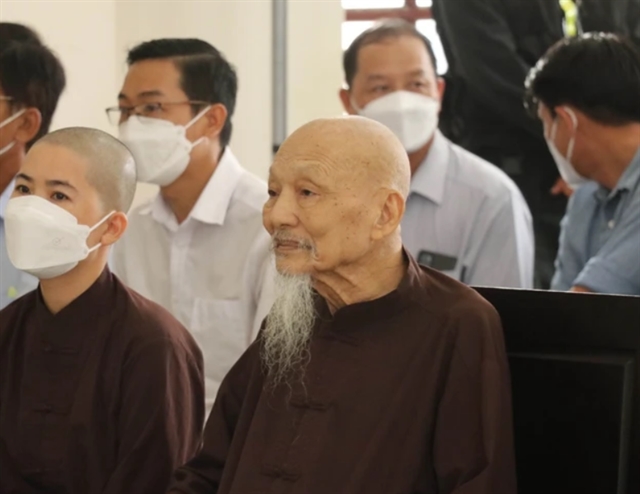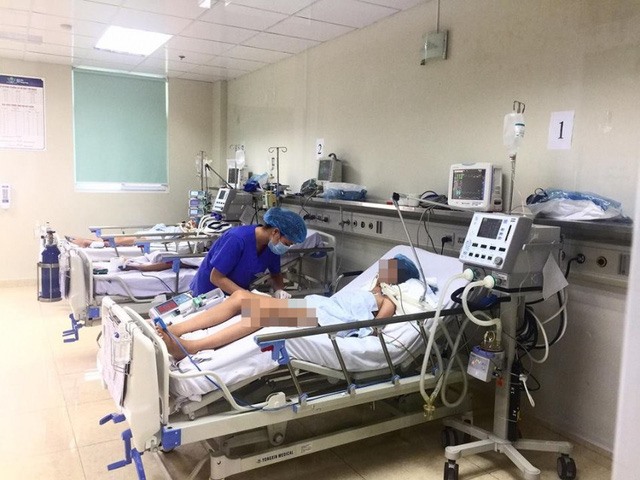 Society
Society

Thirty severe cases of Encephalitis—Meningitis were being treated at the Department of Infectious Diseases of Việt Nam National Children’s Hospital, reported Phụ Nữ Việt Nam (Việt Nam Women) newspaper.
 |
| The thirteen-year-old girl from Hải Dương Province was hospitalised after suffering from acute fever and convulsions.—Photo dantri.com.vn |
HÀ NỘI — Thirty severe cases of Encephalitis—Meningitis are being treated at the Department of Infectious Diseases of Việt Nam National Children’s Hospital, reported Phụ Nữ Việt Nam (Việt Nam Women) newspaper.
Of all the cases, two children were diagnosed with the deadly Japanese Encephalitis, a contagious disease carried by mosquitoes. Both were not vaccinated properly, or possibly not at all.
Lê Quỳnh Tr., a thirteen-year-old from Hải Dương Province was hospitalised after suffering from acute fever and convulsions. The child was reported to be nauseous, unresponsive to antipyretics and experiencing headaches. She then had doctors at a provincial hospital test her condition, and perform a CSF (cerebrospinal fluid) puncture before diagnosing her with the disease and moving her to the Việt Nam National Children’s Hospital. Even while receiving respiratory help and being treated with anti-edema drugs for ten days, the child’s condition remained unstable.
Another child suffering from Japanese Encephalitis, Nguyễn Đức A, 15 months old, from Bắc Ninh Province, was luckier, acquiring a stable state of health after just four days of similar treatment.
Japanese Encephalitis is a malicious disease with a high risk of fatality (25—35 per cent), according to Đỗ Thiện Hải, vice chairman of the Department of Infectious Diseases at the National Paediatrics Hospital. He warned that the disease is difficult to diagnose in its early stages since the symptoms resemble common infections, but after two or three days discernible signs begin to emerge, such as sudden high fever, nausea, dry vomit and dull reactions.
The disease spreads so quickly and severely that children could experience tremors, fall into a coma, or even die after just a day or two, Hải said. What’s more, complications that follow could impair patients’ capabilities to communicate or work, he added.
The most efficient preventive step against Japanese Encephalitis is through a proper vaccination process of three shots: the first shot being given while the child is one year old, followed by the second after a week or two, and the third a year later. Five to seven years after that, the child will became vulnerable to the infection again, so the process must be repeated until the child turns 15, Hải suggested.
The second best prevention is to ensure a clean environment whereby parents frequently sanitise to prevent the growth of harmful bacteria. Experts suggest sleeping with a mosquito net to refrain from being bitten. When children are feverish or show signs of central nervous system damage, they should be hospitalised promptly for timely diagnosis and treatment.—VNS









